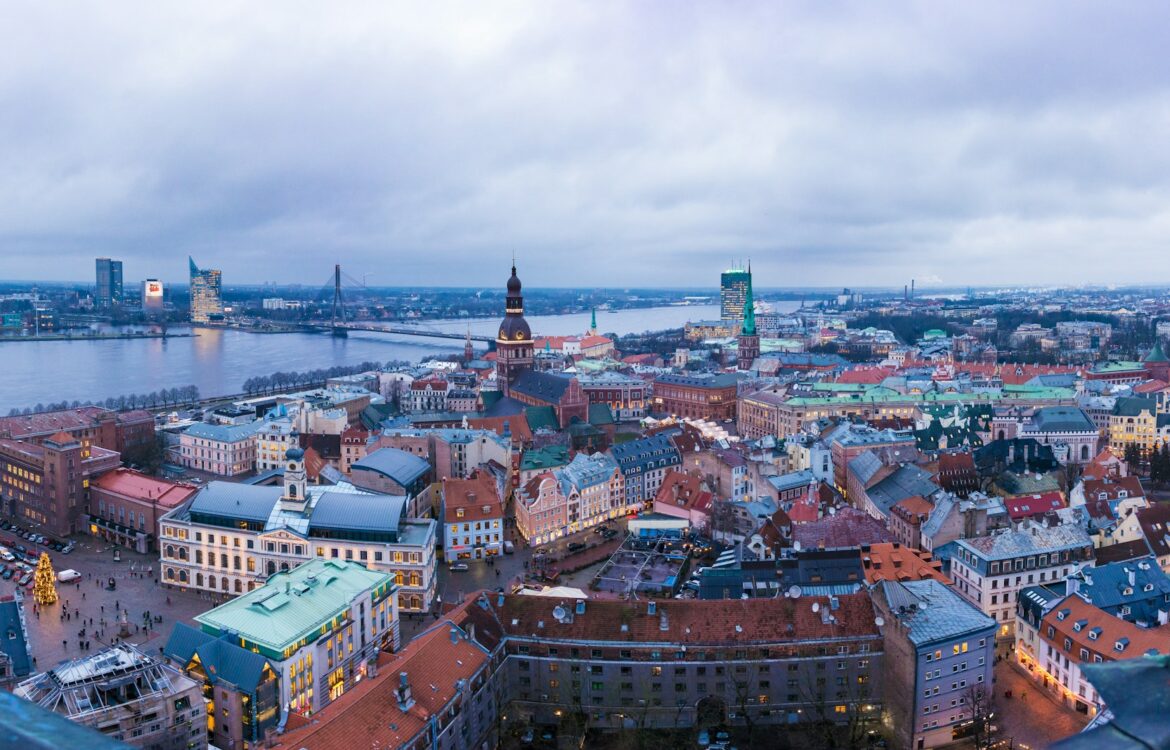
Rural Areas as innovation ecosystems: presented at the ESRS Congress 2025 in Riga (Latvia) a dedicated working group
By Sabrina Tomasi, Carlo Giua, Claudia De Luca, Caterina Selva, Diana Valero, Simon Senft, Katharina Pötzsch, André Knabe
In the week between the 7th and 11th of July, the 30th European Society of Rural Sociology took place in Riga (Latvia), hosted at the Rīga Stradiņš University. Hundreds of researchers from international universities and organisations met to discuss the theme ‘Navigating rural transitions: Exploring liveable futures’, to exchange on and discuss a great range of possible trajectories in rural areas and the main dynamics that are and will shape these potential futures: housing frictions, agroecological farming and generational transition, ageing population, social activism, and many others.
In this inspiring context, researchers from five different institutions and organisations – Sabrina Tomasi and Carlo Giua (University of Pisa, Italy), Claudia de Luca and Caterina Selva (University of Bologna, Italy), Diana Valero (James Hutton Institute, United Kingdom), Simon Senft and André Knabe (Thünen-Institute for Regional Development e.V., Germany) and Katharina Pötzsch (Technische Hochschule Lübeck, Germany) – came together to deepen the great and complex topic of innovation in rural areas, by hosting a dedicated Working Group (WG).
The “Rural Areas as innovation ecosystems: transformative strategies and social innovations” WG invited to define how the concept of innovation ecosystem applies to rural contexts and what actors and dynamics might shape and/or limit the connected innovative activities. Moreover, it offered an occasion to reflect on possibly reviewing and advancing new knowledge on the traditional Social Innovation (SI) concept, which has a long history of application to rural areas, by renovating it through the perspective of the transformative roles innovations can and should have to face place-based but also global, complex contemporary challenges.
What contributions for Social Innovation and Rural Innovation Ecosystems?
The WG hosted 14 presentations distributed in 3 sessions, organised in sub-topics:
- The Rural Innovation Ecosystem (RIE) concept;
- Social innovations led by/involving local communities;
- Social Innovation from a policy/business perspective and Digital Innovations.
The presenters were the following: Carlo Giua (University of Pisa), Caterina Selva (University of Bologna), Joanie Willett (University of Exeter), Socrates Schouten (Wageningen University), Blazka Rupnik and Sara Mikolic (Seoul National University and University of Ljubljana), Triin Kübar (Tallin Unviversity), Hsi Chun Chen (National Chung Hsing University), Katarzyna Zajda (University of Lodz), Kenneth Nordberg (Abo Akademi University), Melek Karahasan (Northumbria University), Sabine Hielscher (Institute for Ecological Economy Research – IÖW), Mattia Mogetta (Marche Polytechnical University), Chiara Mignani (University of Pisa), Valentino Marini Govigli (University of Bologna).
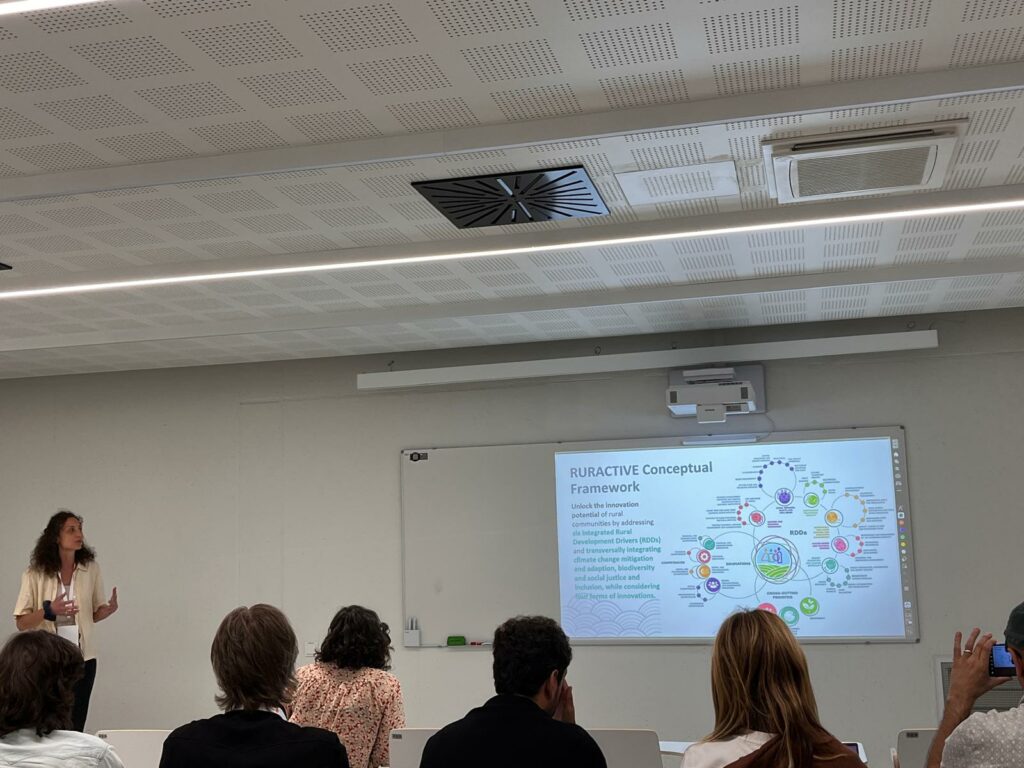
Several contributions presented case studies rooted in European project experiences, such as those focusing on the twin Horizon Europe projects FUTURAL and RURACTIVE, exposed by Carlo Giua and Caterina Selva. These projects partially inspired the topic of the WG and the presentations highlighted both positives results and challenges encountered in the activation of the RIEs’ processes throughout the two projects.
In most cases, the presenters addressed the given themes – both empirically and theoretically – by focusing on innovations in specific rural areas in Europe (e.g.: from Slovenia, Estonia, Finland, Poland, Germany, Italy) and beyond (e.g.: Taiwan and UK).
The first session was introduced by Sabrina Tomasi and moderated by Claudia De Luca.
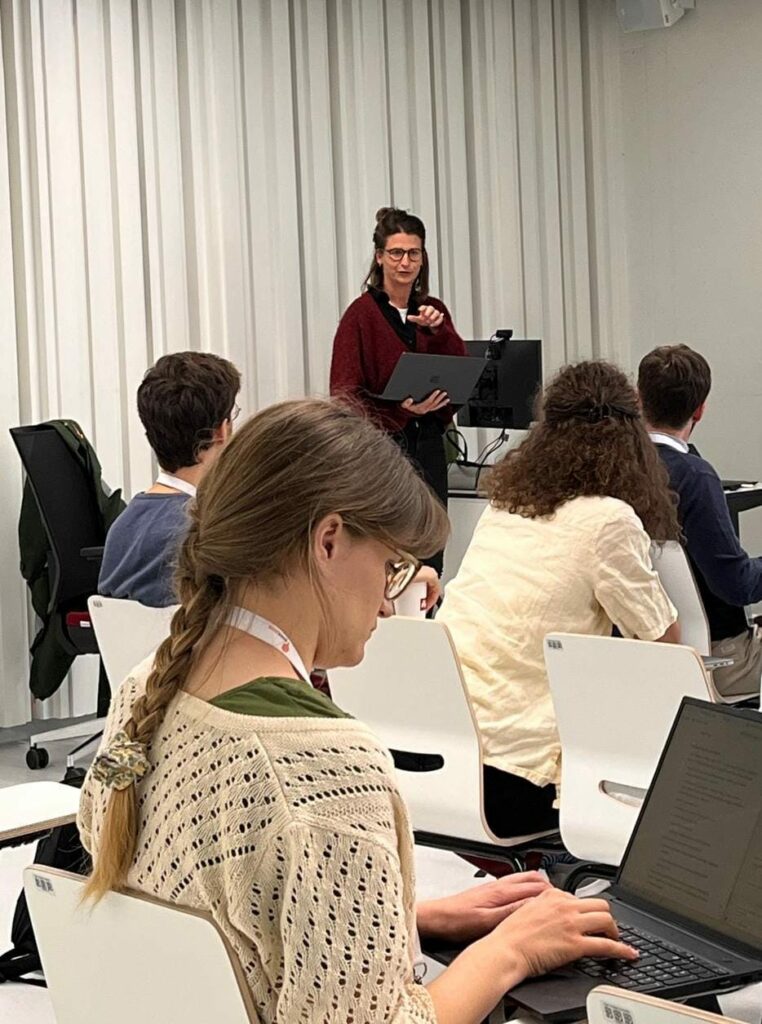
The contributors focused on what an innovation ecosystem in rural areas is or might be, by including some specific features. Key concepts emerged such as collaborative knowledge generation and sharing and the deployment and development of capacities and skills as pivotal characteristics. The presence of an existing although often informal network around key local challenges emerged as a basis for the RIE functioning. Moreover, some mentioned the importance of an activation phase and of “initiators” of such processes as motivators and in keeping the level of engagement high and continuous over time. The protagonism of key actors (local orchestrators), and the proper inclusion of local communities in the processes emerged as essential conditions. The presenters brought both cases of bottom-up and top-down innovations: this arose questions about how the different approaches create different innovation paths and related dynamics. More specifically, several authors have highlighted the ambition of transformative innovation – namely, addressing systemic rural challenges – as a key feature of rural innovation ecosystems. Others emphasised the relationship between the ecosystems’ underlying factors and dynamics and their transformative potential. Some questions emerged about how to find the equilibrium between the need to standardise the monitoring of RIEs’ processes and to define and implement flexible and not too complex co-creation guidelines.
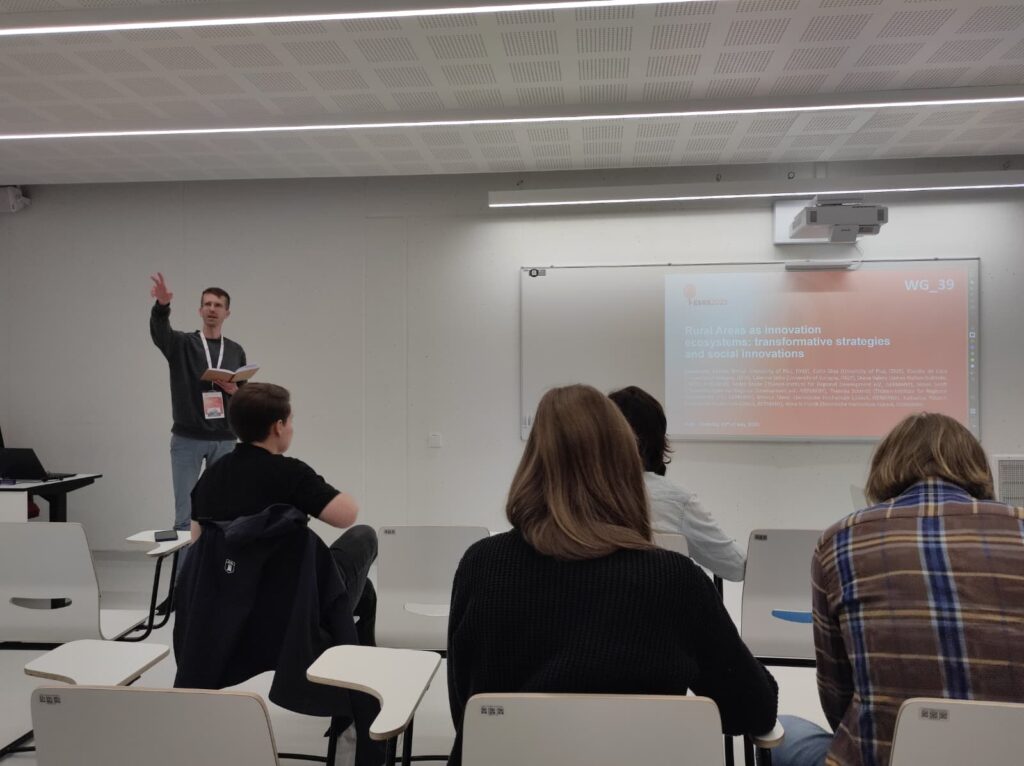
The second session, moderated by André Knabe and Katharina Pötzsch, focused on the role of the third sector and of community services in promoting social innovations in rural areas, by creating environments of reciprocal trust, civic shared spaces and occasions of exchange, also addressing community members at risk of exclusion (e.g.: elderly, young people, etc.) and giving them the possibility to drive such innovations. Questions emerged on how to ensure continuity over time of such processes.
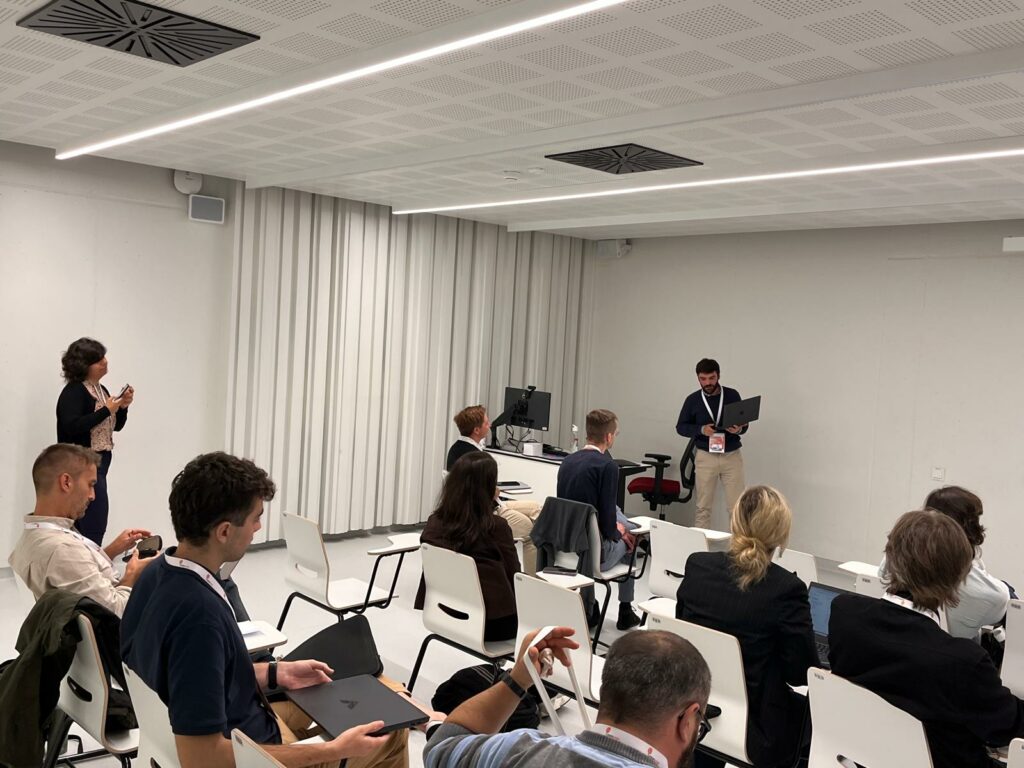
Some potential answers emerged at the beginning of the third session, moderated by Simon Senft and Carlo Giua, and focusing on the links between SI and policy. From a policy perspective, funding and place-based innovative support mechanisms, capacity building and training opportunities, policy and regulatory frameworks and multi-level governance models, as well as networks and collaboration should be guaranteed. In the same session, the implementation of SI was presented also as an economic opportunity for rural communities, through the initiative of community cooperatives and their interlinks with the RIE concept.
The final session also included two contributions focusing specifically on digital applications in different rural contexts. One presented the strong connection between social and technological innovation and the role of (digital) technology as a mean to enhance resilience and adaptation of SI initiatives during Covid 19 pandemic.

The other one proposed the integration of two theoretical frameworks – the Socio-Cyber-Physical System (SCPS) and Digital Innovation Ecosystem (DIE) one – to address the complex challenges and opportunities rural areas are facing nowadays, entailing both local interactions and adaptive processes and the analysis of how digital platforms, governance mechanisms, and institutional infrastructures support (or hinder) collaborative innovation and value co-creation in rural settings.
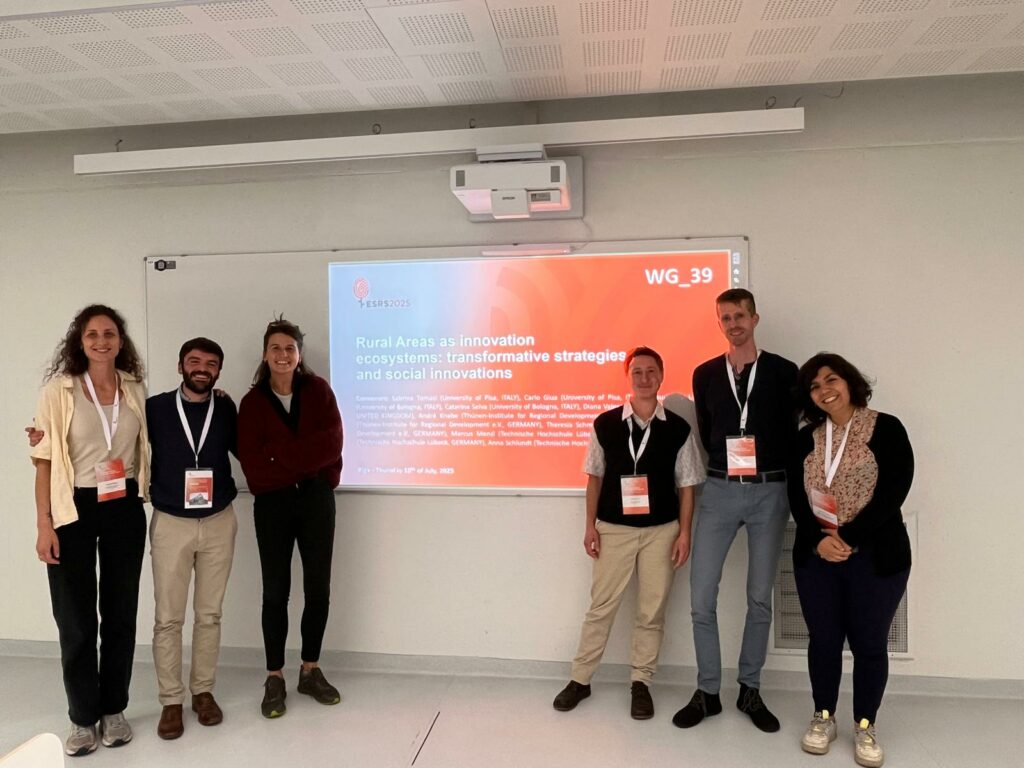
What are the potential future research paths from this WG?
The WG created the conditions for an international (intercultural) and interdisciplinary dialogue around the topic of rural innovation. The high diversity of results and the presence of recurring themes enabled a reflection on the possible attributes of the RIE concept, where SI plays a major role and involves the consideration and analysis of specific features: community collaboration and engagement, social inclusion, knowledge and capacity creation and sharing, dedicated policy, governance, the role of digitalisation from a system/ecosystem perspective. This has been a great starting point for future research paths and for continuing to learn about these topics. Hopefully, in two years, we will meet again at the ESRS to keep reflecting on the related advancements and see whether new collaborations emerged from this special occasion.
A special thanks goes to the co-convenors and authors of the contributions, who nourished and animated the discussionto and to the scientific and organising commitee, and especially to Prof. Dr. Jessica Duncan (Wageningen University) and Prof. Dr. Miķelis Grīviņš (Rīga Stradiņš University) for the care and the great commitment in organising such an inspiring congress.

